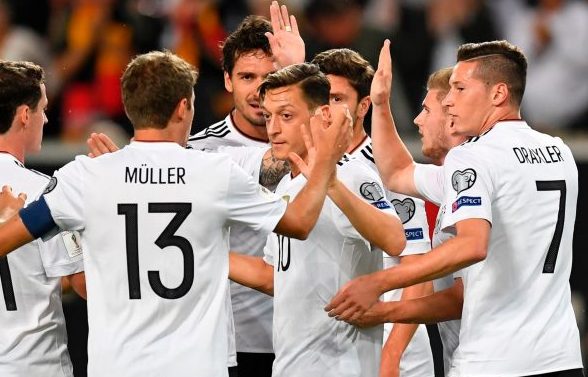The retirement of German international, Mesut Ozil, from international football reverberates globally and has been widely reported in the Nigerian media. It identifies racism, discrimination, and questions identity and then some more, it conjures deep pain.
But it is really, in a wider sense, far more than Ozil and it is beyond Germany. There is, indeed, a deeper impact for countries like Nigeria. Although, many may wonder how Nigeria is indeed connected to the Mesut Ozil retirement story. There is a connection, albeit implicitly.
The contents of Ozil’s retirement text is one that makes you feel a dagger driven deep into your heart as you feel the pain of a guy who has given his all to Germany and yet is treated as the Other, his patriotism questioned, and his citizenship brutally examined by a section of the media.
For Nigeria, it exposes the tenuous lives that second and third generation Nigerians in foreign lands (including footballers) must live.
Ozil is not an outlier by any means. His pain and psychological bleeding is one that so many undergo. Make no mistake about it. Raheem Sterling has endured similar attacks in the English media for years culminating in the ridiculous attacks over a gun tattoo for which Sterling provides a deeper meaning memorializing the death of his father.
Think about the thinly veiled attacks on the French team after it won the World Cups of 1998 and 2018. These things are real.
While some Nigerians may read Ozil’s retirement text as merely an individual’s farewell text and a reading of an ugly side of Germany, it is important to think deeply.
Bear in mind that footballers, like Ozil, who share multiple nationalities including that of Nigeria go through similar questioning of their identity. In many cases, their racial color may even make it worse.
Leon Balogun, also of a German background, told The Player’s Tribune in June “. . . even though Germany is a progressive country, there is that group of people, especially in sport, who still lurk around waiting to knock you down if you’re different.” He added: “. . . even though I felt in my mind that I was just as German as all the other kids, a lot of people didn’t see me like that.” It was a questioning of his identity.

The same as it is for Ozil. The same that it is today, unwritten, for many second and third generation Nigerian footballers in the diaspora.
But this questioning has increased amid the facelessness of social media where attacks are launched frequently and without inhibition by the extremists from the darkest corners of the Internet.
Governments and their officials have stoked the fire from America to Europe where extreme right wingers have emerged from all invidious cracks in society.
In France, the extremist Le Pen who attributed the failure of the French 2010 World Cup team to “another nationality in their hearts” is having her views spread across the French people on immigration issues.
Ozil does remind us of dangers of such spread when he cites rejection even by his own alma mater: “. . . especially with the ‘right-wing party in Gelsenkirchen on the rise’. In all honesty, this really hurt. Despite being a student of theirs back when l was younger. I was made to feel unwanted and unworthy of their time.”
National Team Identity?
What is not known is how the rise in extremist attacks will impact decision on national identity for top line footballers eligible to represent Nigeria from the diaspora.
Will it be a significant driver in a decision to play for Nigeria? Or would the geo-location of their closest friends and the often-touted “organisational effectiveness” and “a good chance to win the World Cup” continue to be the driving factors of choosing a national team identity?
It seems insensitive to discuss national team identity in the midst of serious racial issues. However, the choice of national team identity is, at least one has to believe, about identity with a nation, an identity reciprocated by love and acceptance.
If the likes of Ozil, Sterling, and Balogun feel otherwise in their geo-location environment then one must ask if they are more accepting of an identity with elsewhere that may be more accepting, more reciprocal. After all, an individual must have a choice and right to seek a better quality of life.














